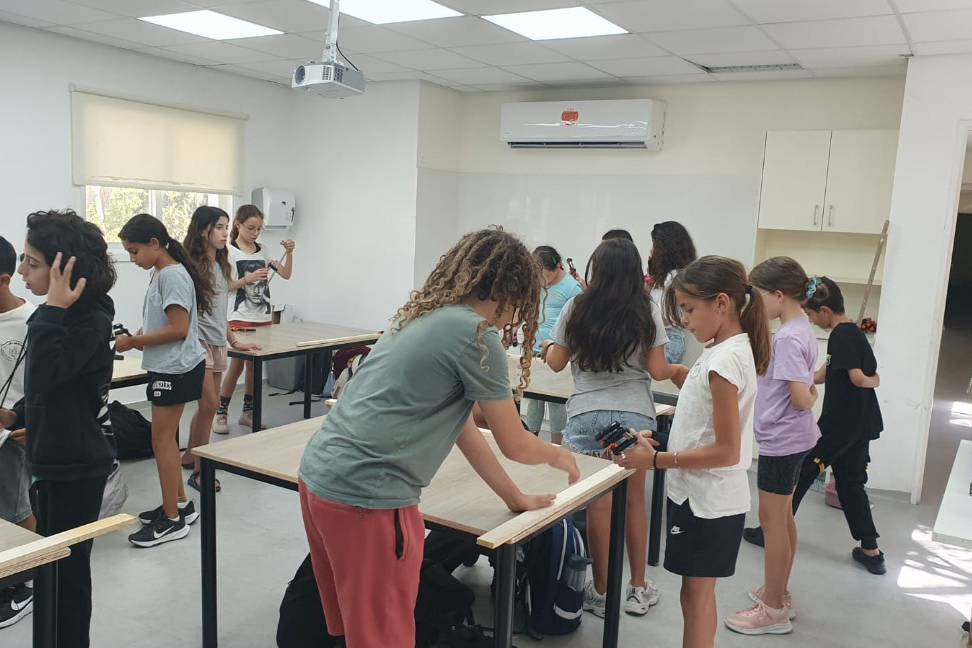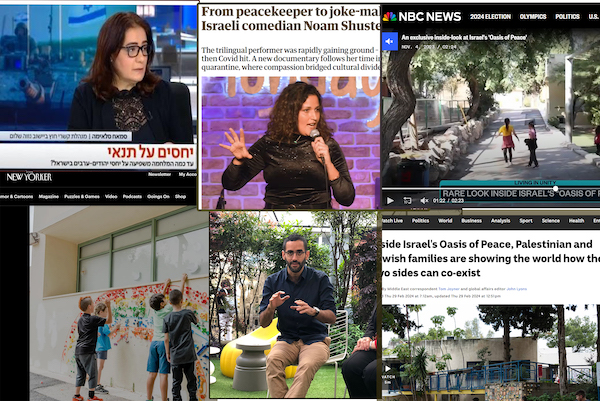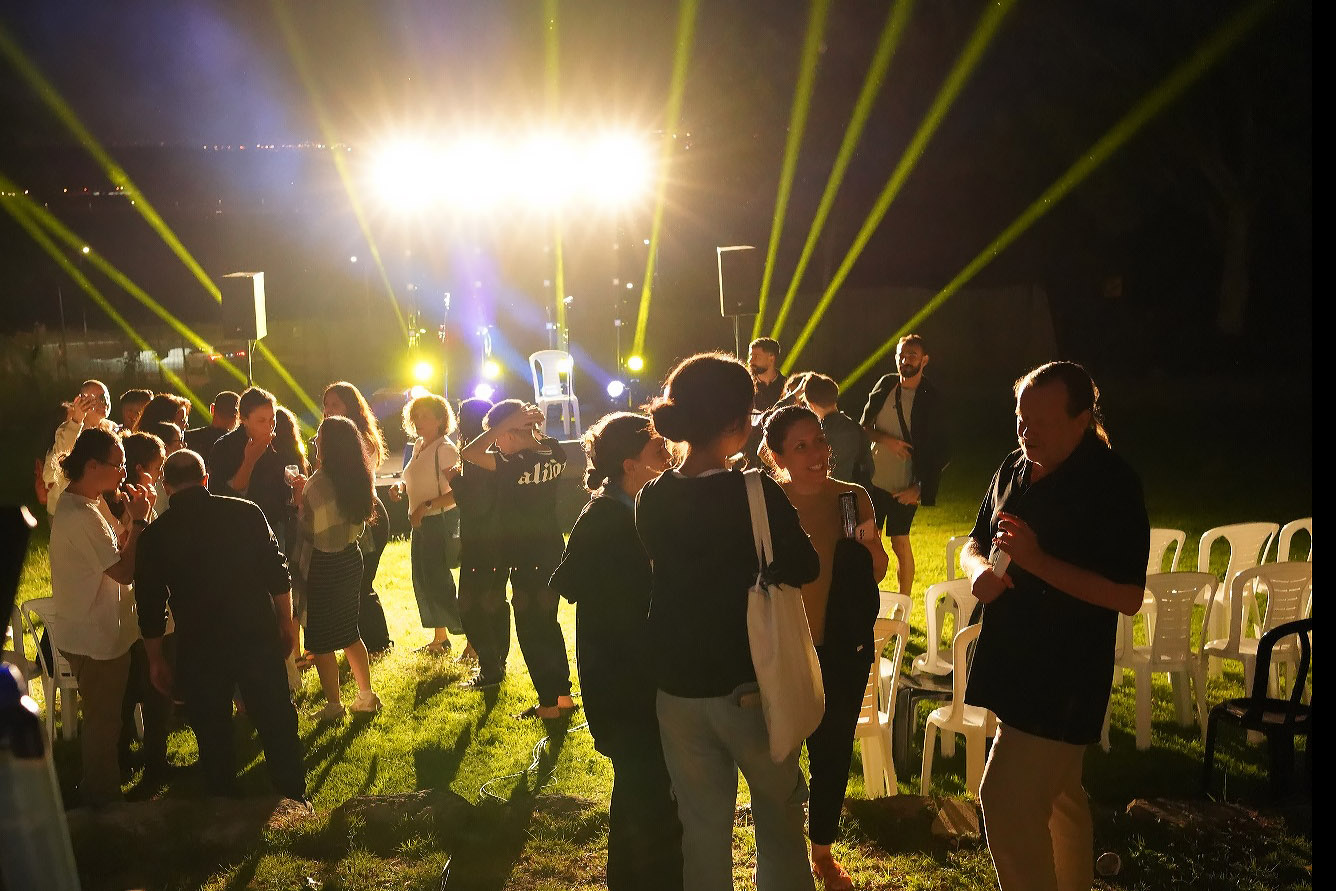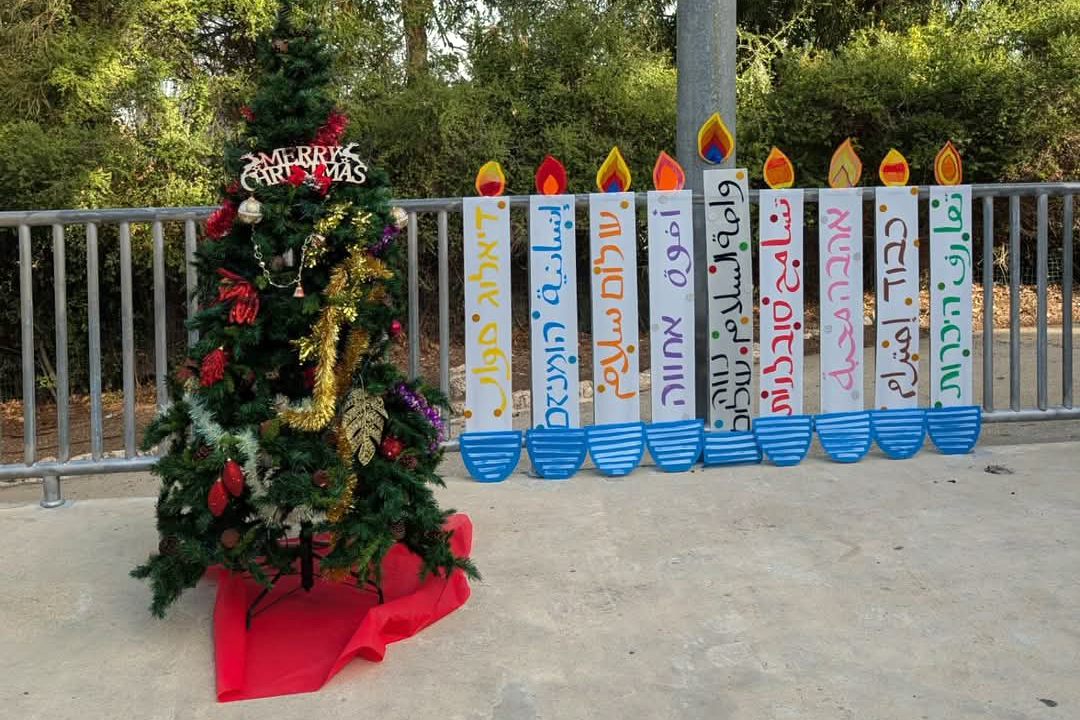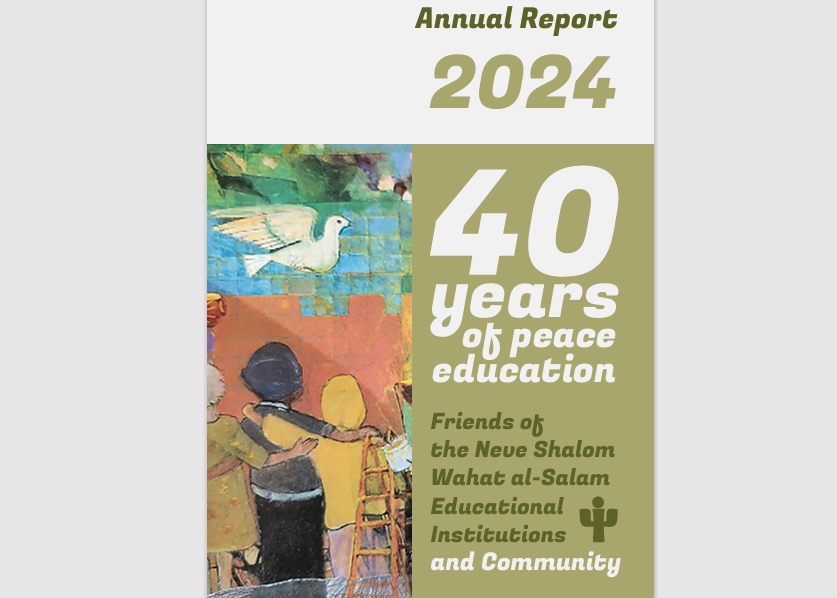A new school year is a new beginning for every grade. The first graders have a whole new world to explore and learn about, the new sixth-graders take their place at the top, gaining respect, perks and the responsibility that accompanies these.
As ever, lessons, even in math, can also be lessons in nature, and lessons on life cycles lead the children to learn about science as well as about themselves. We start the year by meeting new friends, but also by asking what we expect of the school and ourselves for the coming period.
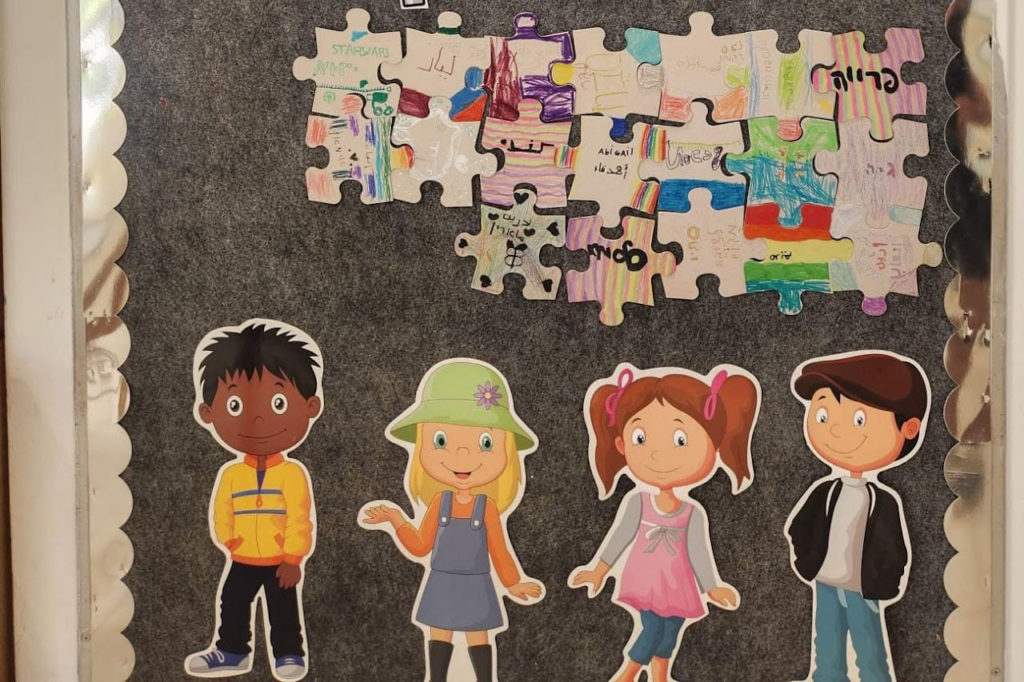
The first graders, for example, began learning their numbers outdoors, writing them with natural materials they found around the school yard. They also had a treasure hunt that helped familiarize them with the various school buildings and grounds.
In their first Arabic lessons together, they created art as they learned to recognize letters.
The second-graders, who can already express themselves in writing and drawing, thought about “what they hope will happen this year.” These children are spending time outside in the forest, for games and lessons in the green setting; and they planted a vegetable garden next to their classroom. Language lessons are, of course, crucial, and the teachers worked with the kids on Arabic as a second language. In the Hebrew lessons, the kids wrote New Years cards for Rosh Hashana. For math, the kids learned about tens by demonstrating with various objects like cubes and rulers.

The third graders started their HOTAM: Education, Culture, Tradition curriculum by learning about holidays. The Feast of the Cross and the Birth of the Prophet Muhammed, both in September and the Jewish High Holidays beginning in October were the source of lessons, stories to be heard, and of, course, art work. The kids also received a surprise — bookmarks inscribed by their parents with wishes for the new year.
The fourth-graders also started their HOTAM lessons learning about the birth of the Prophet and the Feast of the Cross though class activities, a presentation and creative artwork. Their initial thoughts were more complex this year: Their wishes and expectations took the shape of flowers on which they wrote their expectations of themselves, of their classmates and of their upcoming learning experience. To expand their vocabularies in both languages, the kids explored words that are similar in Arabic and Hebrew. Math lessons were important as well, and the kids worked in groups, developing their social skills while learning the ins and outs of the decimal system.
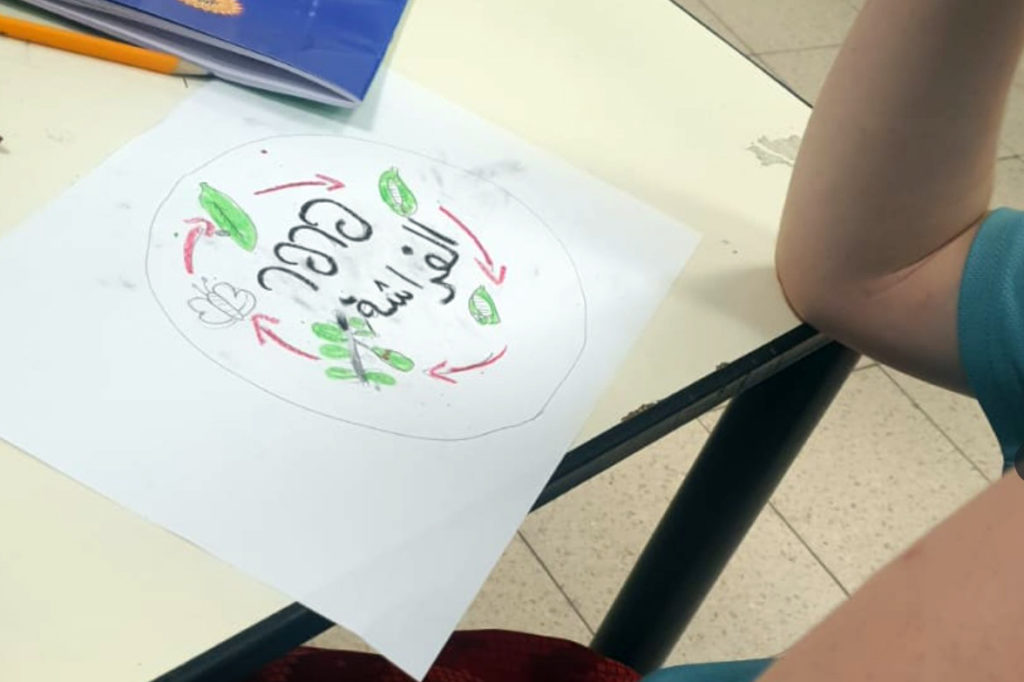
For the older grades, the HOTAM subject was life cycles. After watching clips on life cycles in nature, each fifth-grade child chose a creature, drew a picture about its life cycle and then explained to the class. Afterwards the children planted lentil, chickpea and herb seeds – a project to enable them to observe plant life cycles, day-by-day, with their own eyes.
The sixth-graders take on new responsibility in the school from the first day. That is when they help the first graders feel at home in the school, lining the “red carpet” that leads them to the front of the school yard and preparing the short ceremony to welcome the new kids to the school. This years’ ceremony was shorter and more modest than usual, but the sixth-grade class was well-prepared with short speeches in Arabic and Hebrew.
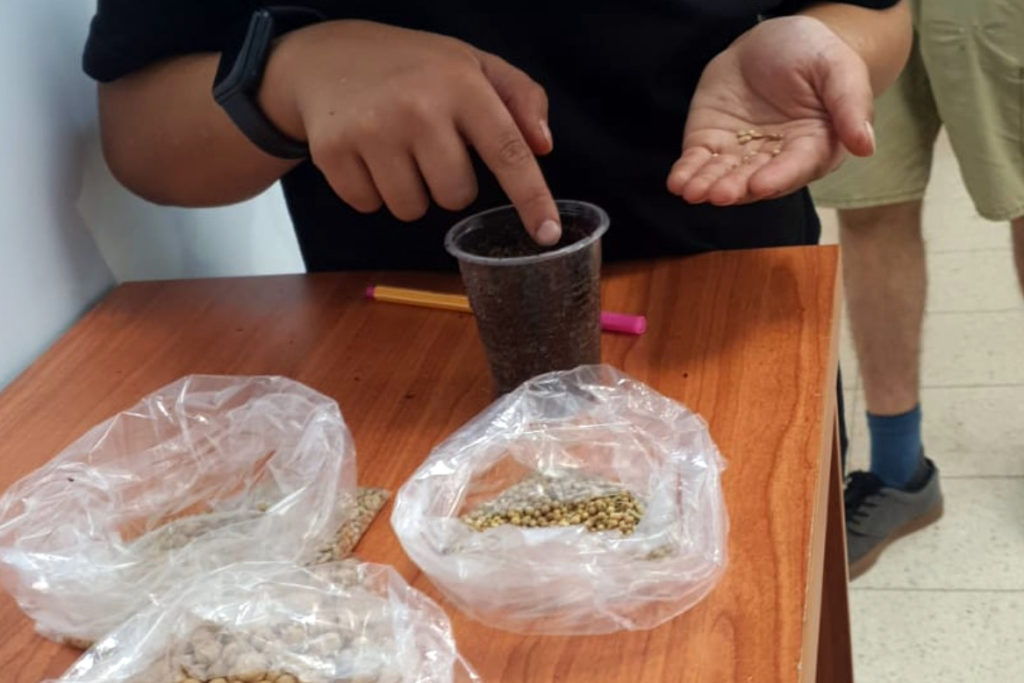
The sixth graders also have a “big brother and sister” project in which they adopt first graders and help them navigate the school activities and meet with them in breaks for activities. In this way, the first graders know they have older kids they can turn to, and the sixth-graders learn crucial lessons about helping others.
By sixth grade, the children already have a good command of both languages and are used to learning in both. Their language lessons tie into their school subjects; in this case, for those learning Hebrew as a second language, prehistory and literary language. In addition, they read the poetry of Natan Yonaton, whose Hebrew poems deal with their HOTAM subject: natural cycles. To help them think about the meaning of the poems, the kids drew pictures depicting the lines that spoke to them.
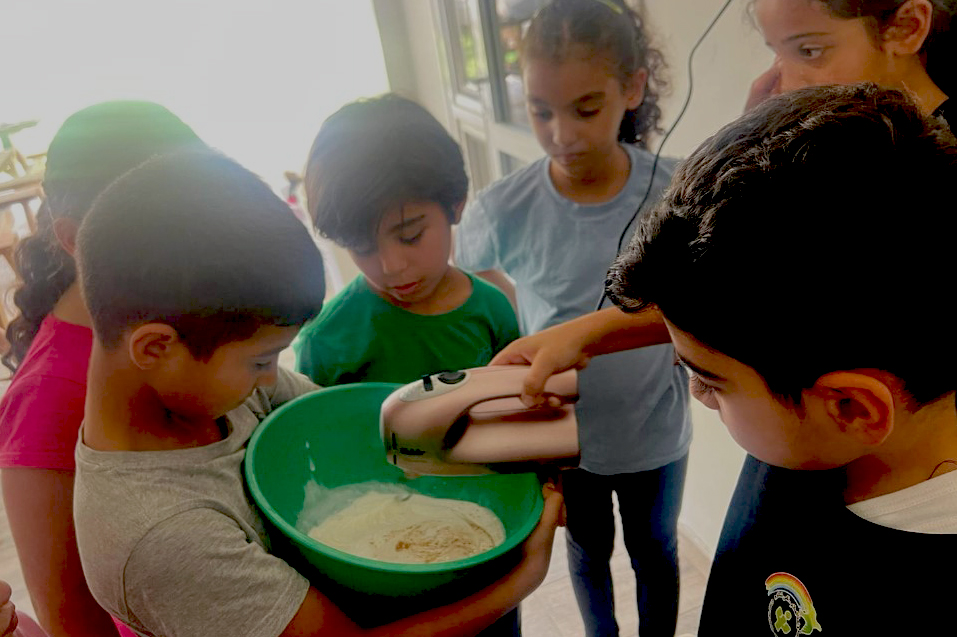
Of course, it’s not all fun learning language and math. The kids had special class days in which they played group games to promote togetherness, and the elective extra-curricular classes have begun.
